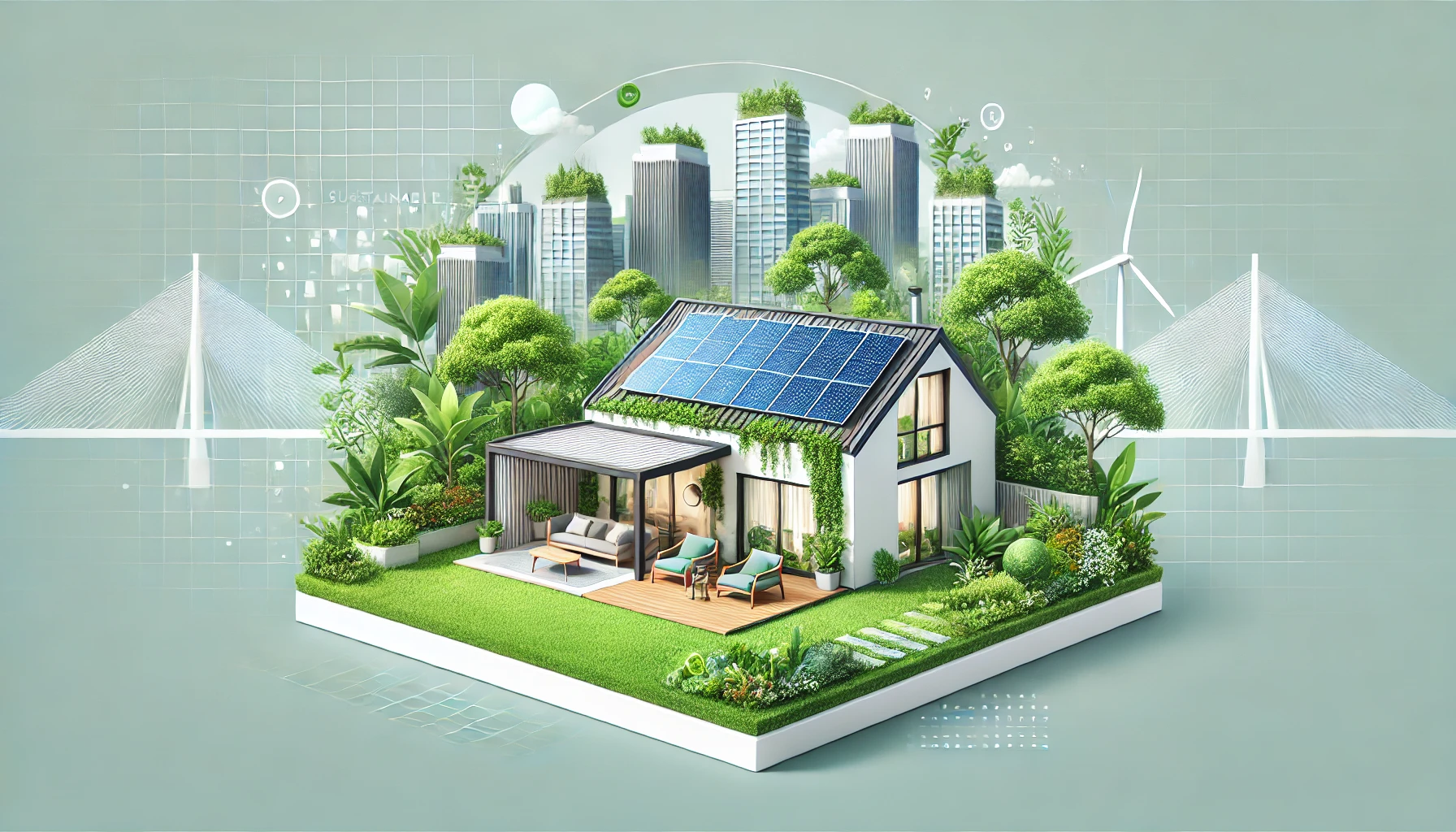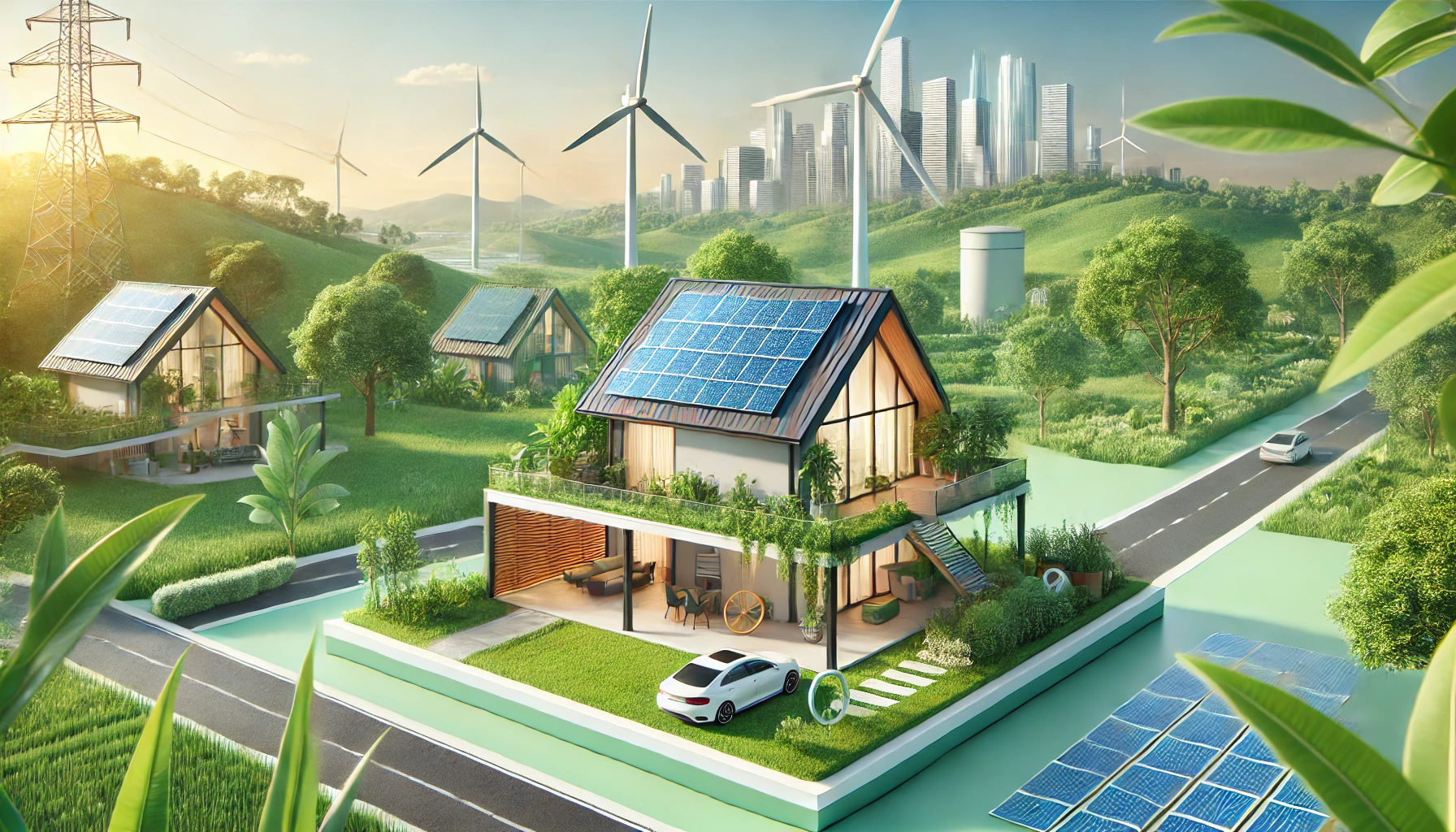As environmental consciousness grows, the demand for sustainable and eco-friendly real estate is skyrocketing. This trend is not just about reducing our carbon footprint but also about creating healthier living spaces and building a more sustainable future. This article explores the world of sustainable real estate, highlighting eco-friendly homes and green investment opportunities.
What is Sustainable Real Estate?
Sustainable real estate encompasses a broad range of practices that minimize the environmental impact of the built environment. This includes:
- Energy Efficiency: Incorporating energy-efficient features such as solar panels, geothermal heating, and high-performance insulation.
- Water Conservation: Implementing water-saving measures like low-flow fixtures, rainwater harvesting systems, and drought-tolerant landscaping.
- Material Selection: Using sustainable and eco-friendly building materials, such as recycled content, bamboo, and reclaimed wood.
- Waste Reduction: Minimizing construction waste and promoting recycling and composting.
- Indoor Air Quality: Creating healthy indoor environments by using low-VOC paints and finishes, and ensuring proper ventilation.
Eco-Friendly Homes: A Growing Trend
Eco-friendly homes are becoming increasingly popular, offering a range of benefits to homeowners, including:
- Reduced Energy Bills: Energy-efficient features can significantly lower utility costs.
- Improved Health and Well-being: Better indoor air quality and access to natural light can enhance occupant health.
- Increased Property Value: Eco-friendly homes often command a premium in the real estate market.
- Environmental Stewardship: Contributing to a more sustainable future by reducing your environmental impact.

Green Investment Opportunities
Investing in sustainable real estate can be a profitable venture. Here are some key opportunities:
- Energy-Efficient Retrofits: Investing in energy-efficient upgrades for existing properties, such as insulation, windows, and lighting.
- Developing Green Buildings: Constructing new buildings that meet stringent sustainability standards.
- Investing in Renewable Energy: Investing in renewable energy sources, such as solar panels and wind turbines, for both residential and commercial properties.
- Sustainable Real Estate Funds: Investing in funds that focus on sustainable real estate development and management.
Challenges and Considerations
While sustainable real estate offers numerous benefits, there are also challenges to consider:
- Higher Initial Costs: Implementing sustainable features can increase upfront construction costs.
- Limited Availability: The supply of truly sustainable properties may be limited in some markets.
- Changing Regulations: Keeping up with evolving building codes and sustainability standards can be complex.
Conclusion
Sustainable real estate is a growing trend with the potential to transform the built environment and create a more sustainable future. By embracing eco-friendly practices and investing in green initiatives, we can all contribute to a healthier planet and a more sustainable way of life.



